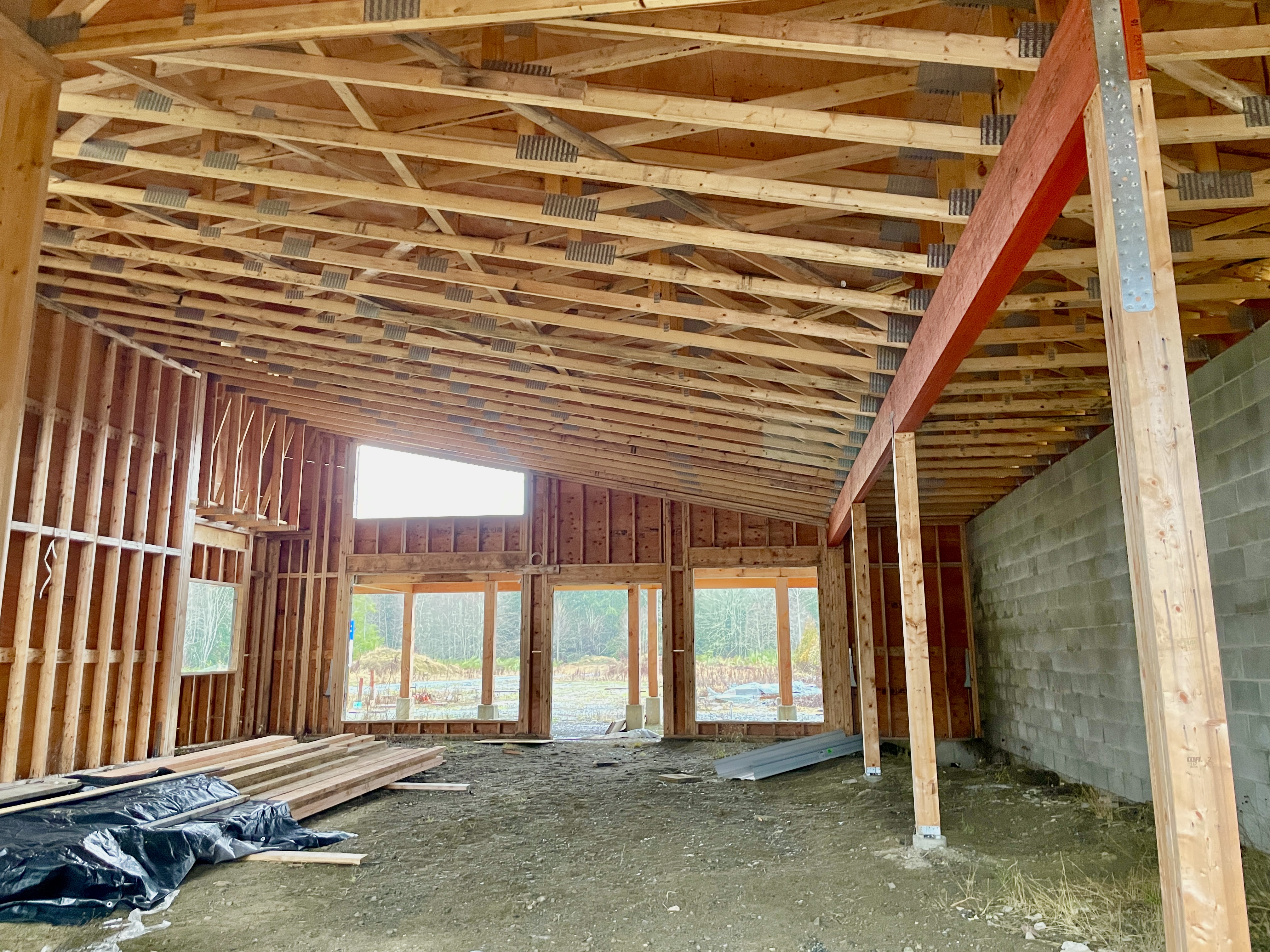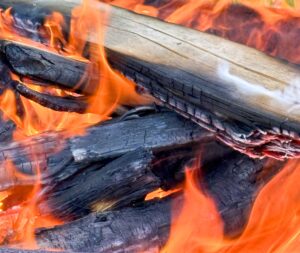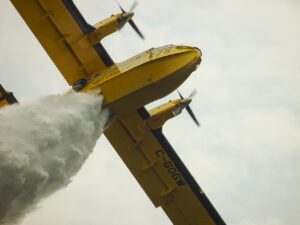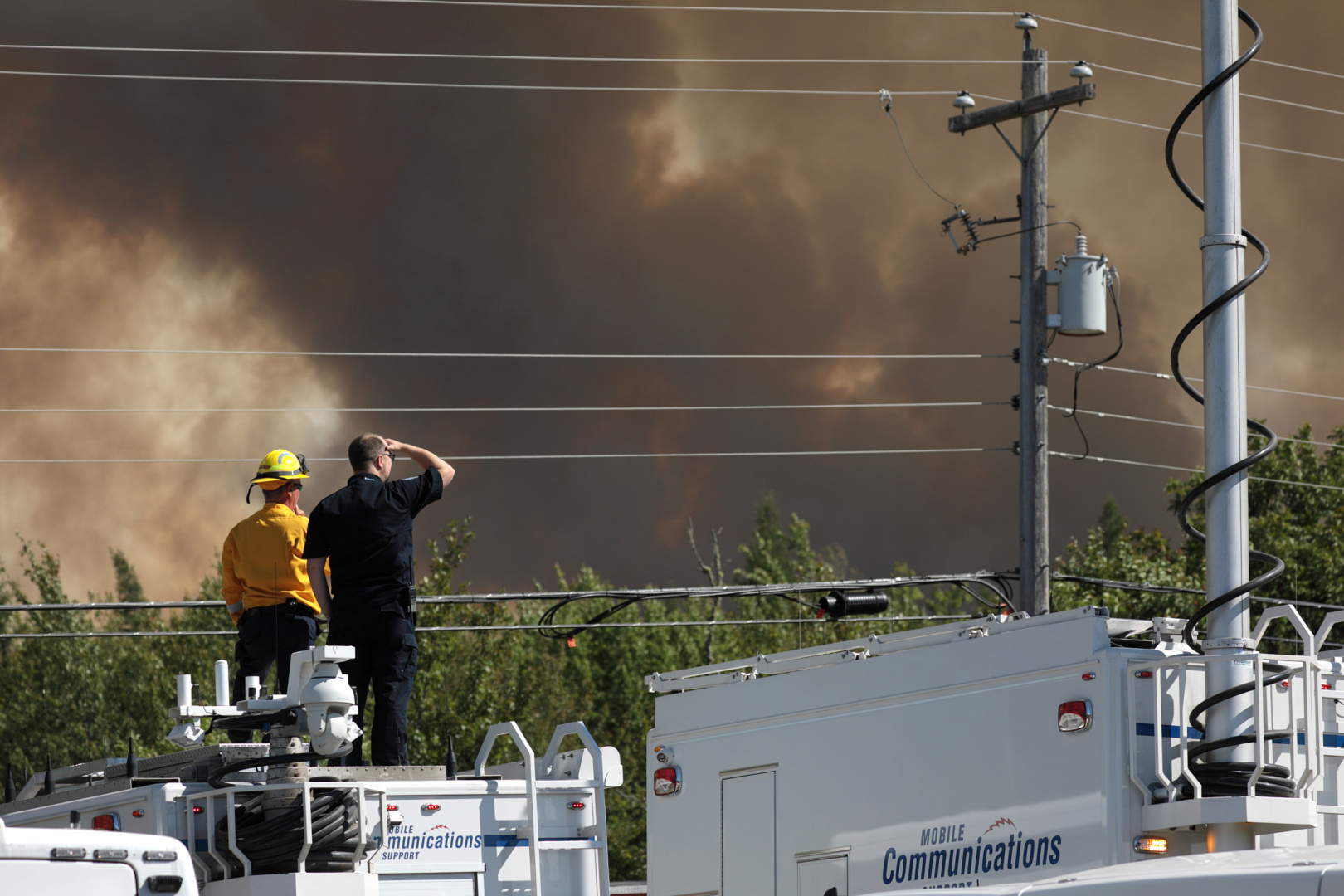 Prime Minister Carney announced the removal of all tariffs on US goods covered by the Canada-US-Mexico Agreement (CUSMA). In related news: BC is surprised by Carney’s move; the US paper industry opposes tariffs on Brazil pulp; Canfor’s Darlington, South Carolina sawmill is now closed; and a Quesnel lumber yard fire is under control. Meanwhile: CPKC says it’s not interested in more railway consolidation; Michigan’s sawmill industry is shrinking; and the slow death of a New Zealand timber town.
Prime Minister Carney announced the removal of all tariffs on US goods covered by the Canada-US-Mexico Agreement (CUSMA). In related news: BC is surprised by Carney’s move; the US paper industry opposes tariffs on Brazil pulp; Canfor’s Darlington, South Carolina sawmill is now closed; and a Quesnel lumber yard fire is under control. Meanwhile: CPKC says it’s not interested in more railway consolidation; Michigan’s sawmill industry is shrinking; and the slow death of a New Zealand timber town.
In Forestry news: ENGO’s block logging in BC’s Walbran Valley; BC’s heat wave shatters records; New Brunswick’s centuries-old fires come with a message; how the BC Institute of Technology can advance your lumber career; and Oregon struggles to find enough forestry workers. Meanwhile: coal-to-wood pellet conversions can help meet US energy demands; and the Wood Pellet Association of Canada’s 2025 conference and tour.
Finally, and sadly, BC forest logging and firefighting trail blazer Ralph Torney died at 82.
Kelly McCloskey, Tree Frog News Editor





 A fire at a lumber yard inside Quesnel city limits is being managed by West Fraser Mills and was expected to be completely extinguished on Monday, Aug. 25, the city’s fire chief said. The 500-square-foot fire at BC Eco Chips on Pinecrest Road was first spotted around 4 a.m. on Saturday, Aug. 23, leading to a response from six fire departments in the Cariboo Regional District, BC Wildfire Service and personnel from West Fraser Mills. Reached by phone on Aug. 25, Quesnel Fire Chief Ron Richert said that the fire departments and wildfire service withdrew from the scene around 8 p.m., leaving West Fraser Mills in charge of managing the scene. At that point, the chief said, there were still “significant flames” but it was fully contained. …Richert confirmed that there were no structured damaged or people hurt by the fire. The cause of the fire has yet to be determined.
A fire at a lumber yard inside Quesnel city limits is being managed by West Fraser Mills and was expected to be completely extinguished on Monday, Aug. 25, the city’s fire chief said. The 500-square-foot fire at BC Eco Chips on Pinecrest Road was first spotted around 4 a.m. on Saturday, Aug. 23, leading to a response from six fire departments in the Cariboo Regional District, BC Wildfire Service and personnel from West Fraser Mills. Reached by phone on Aug. 25, Quesnel Fire Chief Ron Richert said that the fire departments and wildfire service withdrew from the scene around 8 p.m., leaving West Fraser Mills in charge of managing the scene. At that point, the chief said, there were still “significant flames” but it was fully contained. …Richert confirmed that there were no structured damaged or people hurt by the fire. The cause of the fire has yet to be determined.
 DARLINGTON COUNTY, South Carolina — Monday marked the last day of operation at the Canfor sawmill in Darlington. The mill announced its closure
DARLINGTON COUNTY, South Carolina — Monday marked the last day of operation at the Canfor sawmill in Darlington. The mill announced its closure  The final reel of paper from No.6, Tokoroa’s last remaining paper mill, once one of six, is being rolled under the smoke and steam of the mill’s chimneys. In November last year Kinleith’s owner, Oji Fibre Solutions, announced it would shutter the paper mill of its plant and move to importing paper to produce its packaging. Kinleith is losing at least 150 jobs, to say nothing of the contractors, maintenance and supplier businesses downstream. The announcement followed a string of paper mill closures across the country costing 300 jobs, which Oji and other operators attributed to untenable wholesale power costs and year on year losses. For Ian Farrell, who has worked at Kinleith since 1986 the writing was on the wall, though he struggled to accept it. “I thought the government surely wouldn’t let this happen,” he says on the Monday morning the paper mill closed. “We were the last paper manufacturing and packaging site left in the country.”
The final reel of paper from No.6, Tokoroa’s last remaining paper mill, once one of six, is being rolled under the smoke and steam of the mill’s chimneys. In November last year Kinleith’s owner, Oji Fibre Solutions, announced it would shutter the paper mill of its plant and move to importing paper to produce its packaging. Kinleith is losing at least 150 jobs, to say nothing of the contractors, maintenance and supplier businesses downstream. The announcement followed a string of paper mill closures across the country costing 300 jobs, which Oji and other operators attributed to untenable wholesale power costs and year on year losses. For Ian Farrell, who has worked at Kinleith since 1986 the writing was on the wall, though he struggled to accept it. “I thought the government surely wouldn’t let this happen,” he says on the Monday morning the paper mill closed. “We were the last paper manufacturing and packaging site left in the country.” This study investigates the economic impact of sawmill entry and exits in Michigan between 2019 and 2023, a period marked by ongoing structural changes in the industry, including the closure of several large mills and the opening of smaller or mid-sized operations. Using observed employment changes… we applied an employment-based multiplier analysis to estimate how net sawmill job losses affected the statewide economy. The results show that while only 273 direct jobs were lost due to net changes from sawmill entry and exit during this period, the broader ripple effects were much larger, approximately 820 jobs and $211 million in output loss. These effects were most pronounced in labor-intensive sectors such as logging and transportation, as well as in downstream sectors like wholesale trade and real estate. The findings highlight the central role of sawmills in regional supply chains and states labor markets, with two-thirds of job losses occurring outside the mills themselves.
This study investigates the economic impact of sawmill entry and exits in Michigan between 2019 and 2023, a period marked by ongoing structural changes in the industry, including the closure of several large mills and the opening of smaller or mid-sized operations. Using observed employment changes… we applied an employment-based multiplier analysis to estimate how net sawmill job losses affected the statewide economy. The results show that while only 273 direct jobs were lost due to net changes from sawmill entry and exit during this period, the broader ripple effects were much larger, approximately 820 jobs and $211 million in output loss. These effects were most pronounced in labor-intensive sectors such as logging and transportation, as well as in downstream sectors like wholesale trade and real estate. The findings highlight the central role of sawmills in regional supply chains and states labor markets, with two-thirds of job losses occurring outside the mills themselves. The Headlines
The Headlines
 The lumber and sawmilling sector demands skilled leaders who combine technical expertise with sound business acumen. BCIT now offers two Associate Certificates, designed to be completed part-time and fully online in just 12 months, enabling working professionals to advance without leaving the industry. The Associate Certificate in the Business of Sawmilling (starting October 2025) focuses on the operational, financial, and strategic aspects of modern sawmill management. Topics include production planning, quality optimization, supply chain considerations, and market dynamics. Graduates are equipped to contribute to profitability and long-term competitiveness. The Associate Certificate in Industrial Wood Processing (IWP) (starting January 2026) emphasizes the science and technology of wood conversion. With courses in wood properties, manufacturing processes, quality control, and technical problem-solving, the program prepares participants to step into supervisory roles with confidence. Both programs are tailored for career advancement in the North American lumber industry.
The lumber and sawmilling sector demands skilled leaders who combine technical expertise with sound business acumen. BCIT now offers two Associate Certificates, designed to be completed part-time and fully online in just 12 months, enabling working professionals to advance without leaving the industry. The Associate Certificate in the Business of Sawmilling (starting October 2025) focuses on the operational, financial, and strategic aspects of modern sawmill management. Topics include production planning, quality optimization, supply chain considerations, and market dynamics. Graduates are equipped to contribute to profitability and long-term competitiveness. The Associate Certificate in Industrial Wood Processing (IWP) (starting January 2026) emphasizes the science and technology of wood conversion. With courses in wood properties, manufacturing processes, quality control, and technical problem-solving, the program prepares participants to step into supervisory roles with confidence. Both programs are tailored for career advancement in the North American lumber industry. Timber roof trusses have the lowest climate impact across all measured span lengths when compared to concrete, steel, and glulam options. A study conducted by Zeina Alasadi and Selma Bergström Denizoglu at Chalmers University of Technology, Sweden, shows that nail plate connected timber trusses consistently outperform other materials in reducing CO₂ emissions, even when more timber units are required to match the span coverage of a single truss made from concrete or steel. The analysis covered trusses with spans from 6 to 26 meters and focused exclusively on emissions from the production phase, using life cycle assessment (LCA) data corresponding to stages A1–A3. The timber trusses were evaluated using verified environmental product declarations (EPDs) from Derome, which supplied design specifications and material volumes. Timber trusses with spans of 6, 8, 12, and 20 meters generated CO₂ emissions of 59.72 kg, 78.5 kg, 145.15 kg, and 352.5 kg respectively when scaled to match standard center distances.
Timber roof trusses have the lowest climate impact across all measured span lengths when compared to concrete, steel, and glulam options. A study conducted by Zeina Alasadi and Selma Bergström Denizoglu at Chalmers University of Technology, Sweden, shows that nail plate connected timber trusses consistently outperform other materials in reducing CO₂ emissions, even when more timber units are required to match the span coverage of a single truss made from concrete or steel. The analysis covered trusses with spans from 6 to 26 meters and focused exclusively on emissions from the production phase, using life cycle assessment (LCA) data corresponding to stages A1–A3. The timber trusses were evaluated using verified environmental product declarations (EPDs) from Derome, which supplied design specifications and material volumes. Timber trusses with spans of 6, 8, 12, and 20 meters generated CO₂ emissions of 59.72 kg, 78.5 kg, 145.15 kg, and 352.5 kg respectively when scaled to match standard center distances. A prolonged heat wave gripping British Columbia has already toppled more than 20 daily high-temperature records, with forecasters warning the sweltering conditions are set to persist through mid-week. Environment Canada has extended heat warnings to large parts of the province, including Fraser Canyon, South Okanagan, and South Thompson, where highs in the upper 30s are expected to continue. Inland sections of the north and central coasts are forecast to reach up to 29C, while four special weather statements remain in effect for Vancouver Island. …Even as air quality improves, wildfire officials warn the soaring heat and dry air are fuelling dangerous conditions. The B.C. Wildfire Service said low relative humidity is making forest fuels highly susceptible to ignition… For insurers, the intensifying fire risk underscores a costly pattern. …Another active fire season … adds further pressure to an industry already grappling with rising catastrophe exposures in B.C.
A prolonged heat wave gripping British Columbia has already toppled more than 20 daily high-temperature records, with forecasters warning the sweltering conditions are set to persist through mid-week. Environment Canada has extended heat warnings to large parts of the province, including Fraser Canyon, South Okanagan, and South Thompson, where highs in the upper 30s are expected to continue. Inland sections of the north and central coasts are forecast to reach up to 29C, while four special weather statements remain in effect for Vancouver Island. …Even as air quality improves, wildfire officials warn the soaring heat and dry air are fuelling dangerous conditions. The B.C. Wildfire Service said low relative humidity is making forest fuels highly susceptible to ignition… For insurers, the intensifying fire risk underscores a costly pattern. …Another active fire season … adds further pressure to an industry already grappling with rising catastrophe exposures in B.C.
 A monster firestorm roared through the pine and spruce forests of New Brunswick. It burned one-fifth of the province’s forests and raged through villages, reducing buildings to ash and killing at least 160 people — although historians believe that is likely a severe undercount. This was the Miramichi Fire, which 200 years ago this fall announced an era of megafires in North America. Commemorated in folk songs, documented in archives and seared into memory for those who lived through it, the Miramichi Fire to this day ranks among the largest and most devastating fires the continent has ever seen. The Miramichi Fire was the continent’s first megafire rooted in extracting resources from the land, but that century was packed with other examples that collectively destroyed thousands of buildings and caused millions in damages, all while claiming lives. Among the major fires were Quebec City in 1845, 1866, 1876 and 1881; St. John’s in 1846 and 1892; Toronto in 1849, 1885 and 1895; Montreal in 1850, 1852 and 1898 and both Calgary and Vancouver in 1886.
A monster firestorm roared through the pine and spruce forests of New Brunswick. It burned one-fifth of the province’s forests and raged through villages, reducing buildings to ash and killing at least 160 people — although historians believe that is likely a severe undercount. This was the Miramichi Fire, which 200 years ago this fall announced an era of megafires in North America. Commemorated in folk songs, documented in archives and seared into memory for those who lived through it, the Miramichi Fire to this day ranks among the largest and most devastating fires the continent has ever seen. The Miramichi Fire was the continent’s first megafire rooted in extracting resources from the land, but that century was packed with other examples that collectively destroyed thousands of buildings and caused millions in damages, all while claiming lives. Among the major fires were Quebec City in 1845, 1866, 1876 and 1881; St. John’s in 1846 and 1892; Toronto in 1849, 1885 and 1895; Montreal in 1850, 1852 and 1898 and both Calgary and Vancouver in 1886. Oregon’s forestry sector, once the state’s driving industry, has scaled back dramatically, the result of modernization and reduced harvests since the 1990s. Yet the industry is still adding workers and looking to replace retirees — now with a growing demand for technical expertise. The industry’s employers say they’re struggling to fill the jobs they have. Retirements have thinned the ranks, turnover is high and new workers are hard to recruit. Adding to the trouble, a workforce study found the sector will add 3,400 jobs annually through 2030. In particular, the report found Oregon’s colleges and universities aren’t producing enough forestry graduates to meet demand — suggesting Oregon employers might have to recruit from elsewhere to staff some of the highest-paying jobs in a signature sector. It’s a counterintuitive finding for an industry that’s been cutting further in recent months through the closures of mills and factories. Officials say that’s because there’s more to forestry work than logging.
Oregon’s forestry sector, once the state’s driving industry, has scaled back dramatically, the result of modernization and reduced harvests since the 1990s. Yet the industry is still adding workers and looking to replace retirees — now with a growing demand for technical expertise. The industry’s employers say they’re struggling to fill the jobs they have. Retirements have thinned the ranks, turnover is high and new workers are hard to recruit. Adding to the trouble, a workforce study found the sector will add 3,400 jobs annually through 2030. In particular, the report found Oregon’s colleges and universities aren’t producing enough forestry graduates to meet demand — suggesting Oregon employers might have to recruit from elsewhere to staff some of the highest-paying jobs in a signature sector. It’s a counterintuitive finding for an industry that’s been cutting further in recent months through the closures of mills and factories. Officials say that’s because there’s more to forestry work than logging. Three nations joined forces Friday to establish what will become the second-largest nature reserve in Latin America. Mexico, Guatemala, and Belize announced the creation of a massive tri-national protected area spanning 14 million acres (5.7 million hectares) across the heart of the ancient Maya forest. The announcement came during a summit in Calakmul, where Mexican President Claudia Sheinbaum stood alongside Guatemalan President Bernardo Arévalo and Belize Prime Minister Johnny Briceño to reveal plans for the Biocultural Corridor of the Great Mayan Forest. “This is one of Earth’s lungs, a living space for thousands of species with an invaluable cultural legacy that we should preserve with our eyes on the future,” Sheinbaum said during the joint press conference. She called the move “historic.” The new reserve will encompass 50 existing protected areas across the three countries.
Three nations joined forces Friday to establish what will become the second-largest nature reserve in Latin America. Mexico, Guatemala, and Belize announced the creation of a massive tri-national protected area spanning 14 million acres (5.7 million hectares) across the heart of the ancient Maya forest. The announcement came during a summit in Calakmul, where Mexican President Claudia Sheinbaum stood alongside Guatemalan President Bernardo Arévalo and Belize Prime Minister Johnny Briceño to reveal plans for the Biocultural Corridor of the Great Mayan Forest. “This is one of Earth’s lungs, a living space for thousands of species with an invaluable cultural legacy that we should preserve with our eyes on the future,” Sheinbaum said during the joint press conference. She called the move “historic.” The new reserve will encompass 50 existing protected areas across the three countries. The Wood Pellet Association of Canada’s annual conference is just around the corner! Register now for one of the biggest draws of the WPAC annual event: the tour. This time it’s the day before the conference, when we’ll learn more about the people, facilities, and communities behind the sector. Depart from Halifax Marriott Harbourfront Hotel around 8:30 am and enjoy a scenic drive to Hardwood Lands, where you will see the Shaw Renewables pellet plant. From there, we will make our way back to Halifax, stopping at an installation or for a scenic break. We will tour the Port of Halifax in the afternoon and return to the hotel by 4:00 pm. Don’t miss this chance to be inspired by those in our sector who are committed to producing clean, renewable and responsible energy from Canadian wood pellets. Space is limited. Cost: $124/person
The Wood Pellet Association of Canada’s annual conference is just around the corner! Register now for one of the biggest draws of the WPAC annual event: the tour. This time it’s the day before the conference, when we’ll learn more about the people, facilities, and communities behind the sector. Depart from Halifax Marriott Harbourfront Hotel around 8:30 am and enjoy a scenic drive to Hardwood Lands, where you will see the Shaw Renewables pellet plant. From there, we will make our way back to Halifax, stopping at an installation or for a scenic break. We will tour the Port of Halifax in the afternoon and return to the hotel by 4:00 pm. Don’t miss this chance to be inspired by those in our sector who are committed to producing clean, renewable and responsible energy from Canadian wood pellets. Space is limited. Cost: $124/person
 New Brunswickers will be permitted once again to enter the province’s forests, following a bout of cool weather that has reduced the risk of wildfires, officials said Monday. Starting Tuesday at 12:01 a.m., the province will lift its ban on access to Crown land, parts of which have been scorched in recent weeks by wildfires triggered by drought-like conditions and lightning. “I would like to thank New Brunswickers for their co-operation, for changing their plans for protecting our forests and communities,” Premier Susan Holt said Monday. About two weeks ago, there were 39 active wildfires across the province, and temperatures were close to 40 C with the humidex, said Natural Resources Minister John Herron. But over the past couple of days, temperatures have fallen well into the “very low teens” at night, he said, adding that parts of New Brunswick got rain on Monday, which has helped in firefighting.
New Brunswickers will be permitted once again to enter the province’s forests, following a bout of cool weather that has reduced the risk of wildfires, officials said Monday. Starting Tuesday at 12:01 a.m., the province will lift its ban on access to Crown land, parts of which have been scorched in recent weeks by wildfires triggered by drought-like conditions and lightning. “I would like to thank New Brunswickers for their co-operation, for changing their plans for protecting our forests and communities,” Premier Susan Holt said Monday. About two weeks ago, there were 39 active wildfires across the province, and temperatures were close to 40 C with the humidex, said Natural Resources Minister John Herron. But over the past couple of days, temperatures have fallen well into the “very low teens” at night, he said, adding that parts of New Brunswick got rain on Monday, which has helped in firefighting.